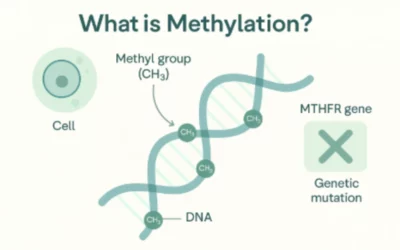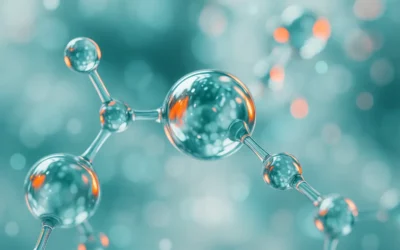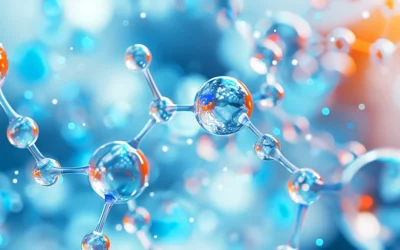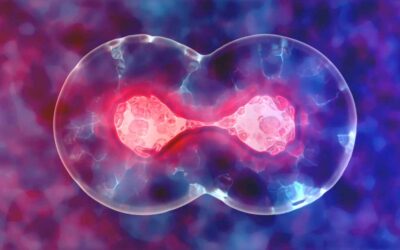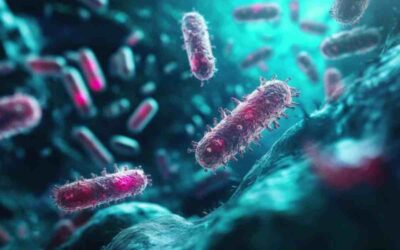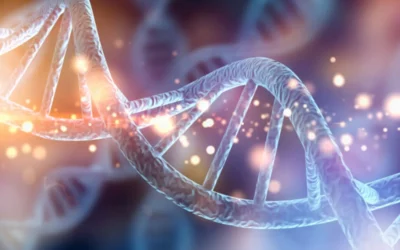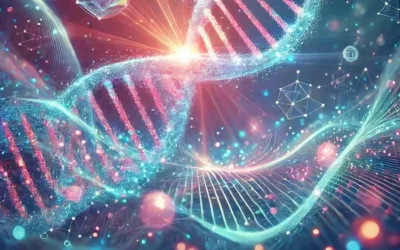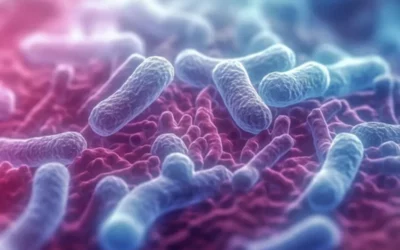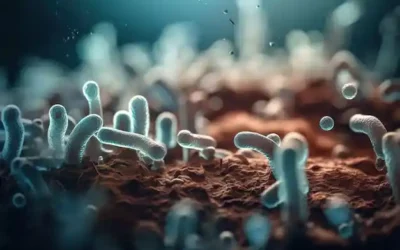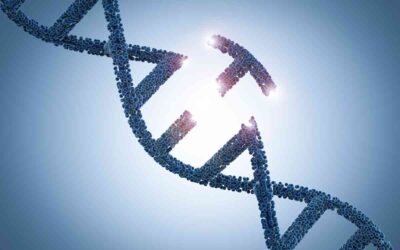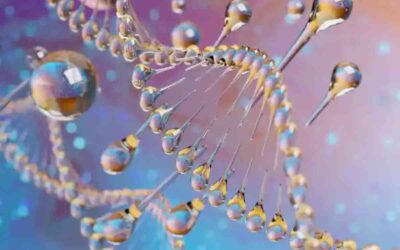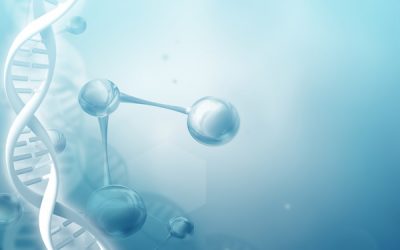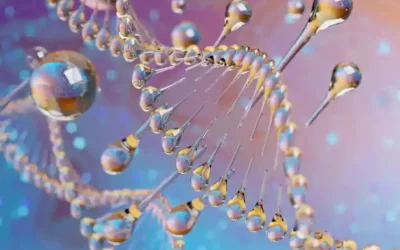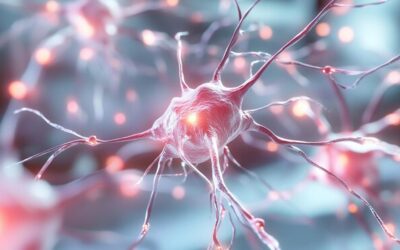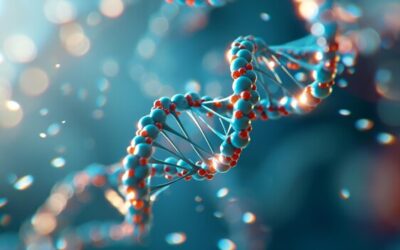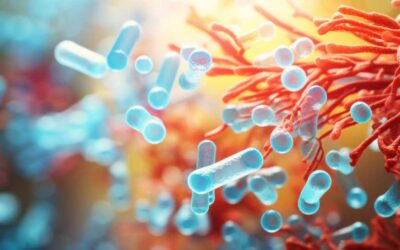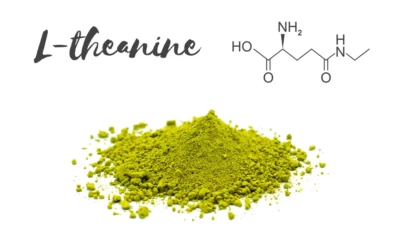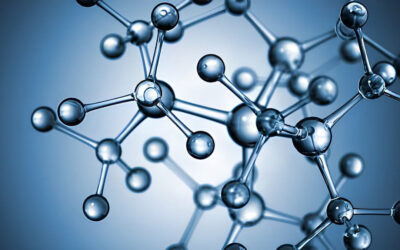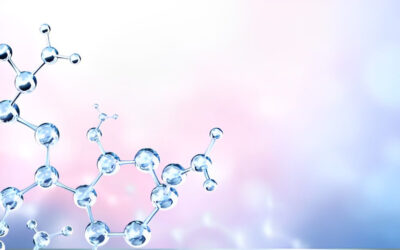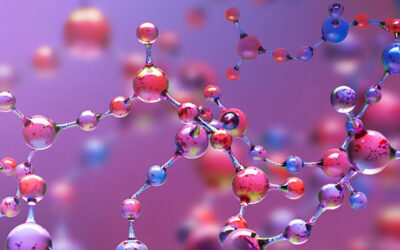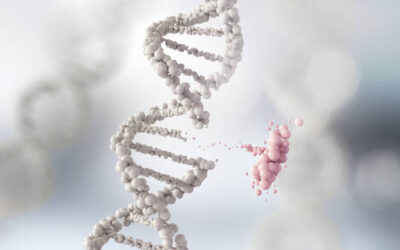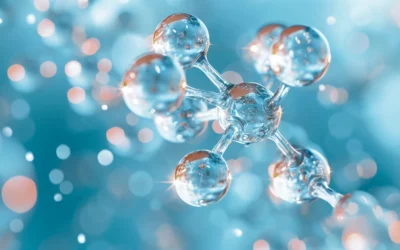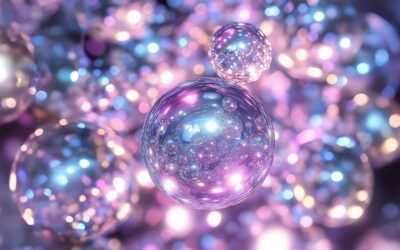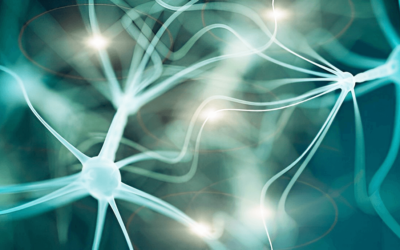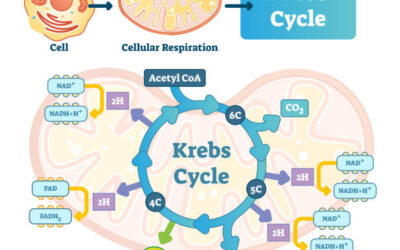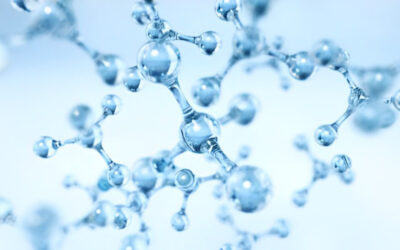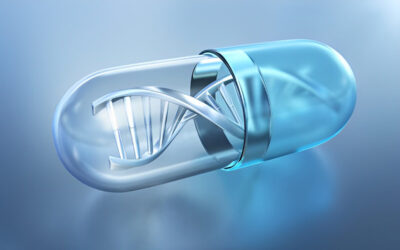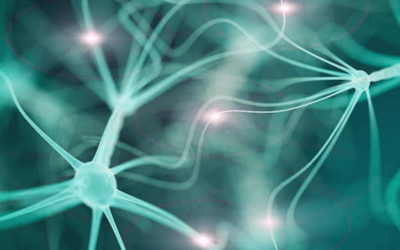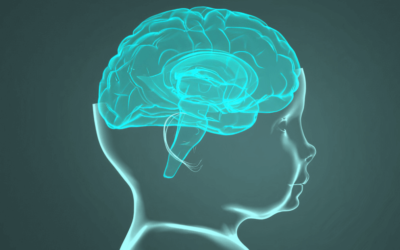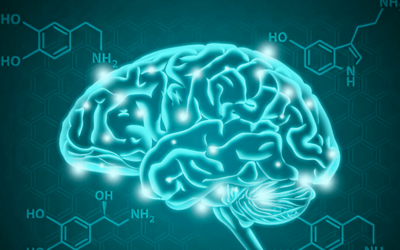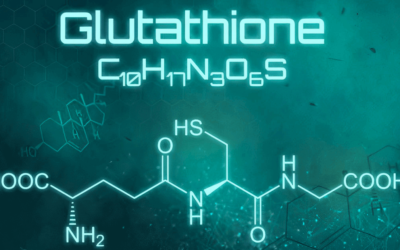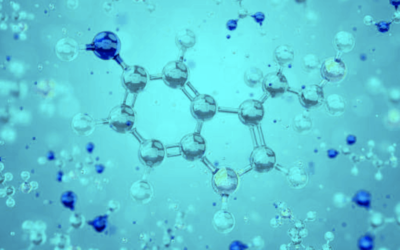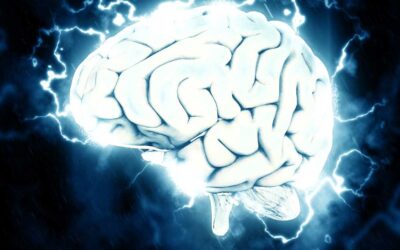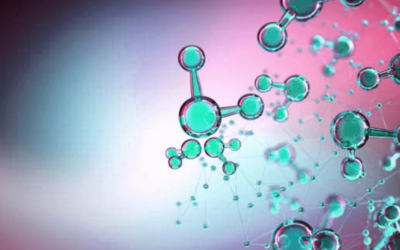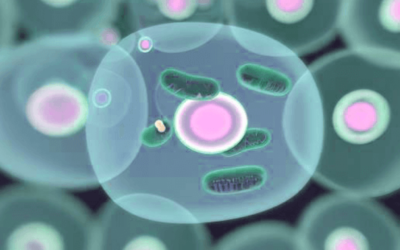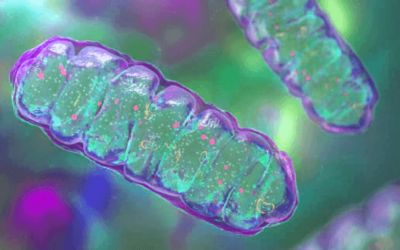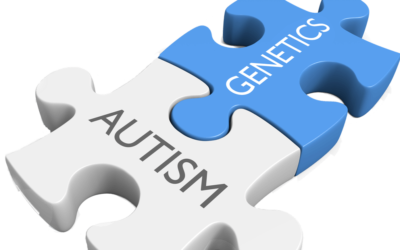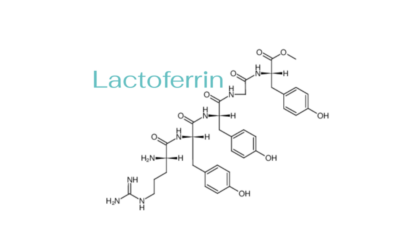Autism & Genes
Evidence-based information
Introduction
Autism and genes
Autism and genes – In the past these two words were inseparable, Autism can be caused by errors in hundreds of genes individually. The mapping of the genetic background of autism is very advanced and currently around a thousand genes that may be responsible for the disease have been identified. Perhaps the most comprehensive autism database in the world, the Simons Foundation’s, currently contains 913 genes that we have scientific evidence to be associated with ASD.
However, it is highly likely that the genetic background alone is not sufficient for the development of autism, and additional external factors – so-called environmental factors – are necessary. Thus, in people who have autism spectrum disorder and do not have any other accompanying symptoms, genetics and environmental influences together lead to the disease. For this reason, we cannot yet determine a clear genetic background in such ASD cases.
Membership is required to read certain articles. You can join HERE.
Glutathione Benefits: The Master Antioxidant Explained
In the age of wellness trends and biohacking buzzwords, it’s easy to overlook the real MVPs of health—those quietly working behind the scenes in every single cell of our body. Among them, one compound stands out as a true game-changer: glutathione. Often referred to...
Methylation and BloodSugar Balance
Does your day start with a rushed coffee, spike around school‑run time, dip at 3 p.m., and limp toward bedtime with nothing left for yourself? You are not alone. For many moms and health‑conscious women, fatigue, cravings, and mood swings feel like part of the job...
Improving Brain Function in Autism
Supporting the development of a young child on the autism spectrum requires a multifaceted and highly individualized approach. This is especially true in cases where the child exhibits speech delays and signs of impaired neuroplasticity—the brain's ability to adapt...
Microbiome Diet – Everything You Need to Know
Your body is home to trillions of microorganisms—bacteria, fungi, viruses, and even parasites. Collectively, they form what scientists call the microbiome. Most of these microbes live in your gut, especially in the large intestine, and play a fundamental role in...
How the Methylation Process Works in the Human Body
Methylation might not be a word you hear every day, but it’s one of the most important processes happening in your body—billions of times per second. This tiny biochemical reaction is a behind-the-scenes powerhouse: methylation process helps your body detoxify harmful...
Folinic Acid Autism Link: Understanding Cerebral Folate Deficiency
Folate, a vital B vitamin, plays an essential role in brain development, cognitive function, and mental well-being. While many people associate folate with pregnancy and neural tube development, its importance doesn't stop there — especially when it comes to children...
What is Nutrigenomics? How Your Genes Affect Your Diet
Understanding the power of nutrition tailored to your genes. Imagine a world where your diet isn’t based on general advice, but on your unique genetic blueprint. What if you could optimize your energy levels, improve your digestion, and reduce your risk of chronic...
What Is Methylation? Understanding The Body’s Essential Biochemical Process
Methylation is one of the most vital and fascinating processes in the human body — yet it's still unfamiliar to many people, even those who are health-conscious. Simply put, methylation is a biochemical reaction in which a methyl group (one carbon atom and three...
Detox Warning Signs: 5 Signals Your Body Needs a Reset
In today’s fast-paced, toxin-filled world, it's no surprise that our bodies occasionally need a reset. From processed foods and environmental pollutants to stress and lack of sleep, the modern lifestyle can overload our detoxification systems. But how do you know when...
Small habits habits to improve gut health
Your gut health plays a major role in your overall well-being—from digestion and immune function to mental clarity and energy levels. In recent years, science has uncovered a deep connection between the gut microbiome (the trillions of bacteria living in your...
Detoxification Drinks: Natural Recipes to Support Your Body
What Are Detoxification Drinks? Detoxification drinks are beverages made with natural ingredients that aim to support the body’s cleansing processes. These drinks help flush out toxins, improve hydration, promote liver and kidney health, and boost overall...
Guide to Detoxification: How to Support It Naturally
Detoxification is the body's natural process of neutralizing, transforming, and eliminating toxins from the body. These toxins can come from: Environmental pollutants (air, water, food) Pesticides and heavy metals Processed foods and additives Alcohol and medications...
Redox Signaling Pathways: The hidden language of cellular health
Redox signaling pathways is the cellular communication process that relies on reactive molecules—specifically reactive oxygen species (ROS) and reactive nitrogen species (RNS)—to transmit messages between and within cells. Unlike damaging oxidative stress, redox...
The Power of Movement: Mitochondrial Health Exercise Guide
How Mitochondrial Health Exercise can help to improve your well-being? When it comes to boosting energy, fighting fatigue, and aging gracefully, few things rival the benefits of movement. Exercise isn't just good for your heart or waistline—it's one of the most...
Mitochondrial Health Diet: What to Eat to Energize Your Cells
Why Diet Matters for Mitochondrial Health? The mitochondria are the power plants of our cells. They generate the energy (ATP) we need for virtually every bodily function—from thinking and breathing to muscle movement and hormone production. But just like any power...
Mitochondrial Health: How to Support Your Cellular Powerhouses
Mitochondrial health refers to the optimal functioning of the mitochondria—the tiny organelles in our cells that act as energy producers. Often called the "powerhouses" of the cell, mitochondria convert nutrients from the food we eat into ATP (adenosine triphosphate),...
Signs of an Unhealthy Gut: What Your Body Is Telling You
Your gut is more than just a digestion center—it's the command hub for your immune system, mood, metabolism, and even skin health. When your gut is out of balance, it can affect nearly every system in your body. Recognizing the signs of an unhealthy gut is the first...
Leaky Gut Syndrome: Symptoms, Causes, and Natural Remedies
Leaky Gut Syndrome—also known as increased intestinal permeability—is a condition that has gained growing attention in the fields of integrative and functional medicine. Though not yet widely recognized by conventional medicine as a formal diagnosis, many health...
Top Methylation Support Supplements You Should Know About
Methylation is one of the most important biochemical processes in the body — yet it’s often overlooked. It influences everything from gene expression and detoxification to mood regulation and cardiovascular health. When methylation is impaired, symptoms like fatigue,...
How to Improve Mitochondrial Function Naturally
Mitochondria are the powerhouse of your cells — quite literally. They generate ATP, the energy currency your body needs for everything from brain function to muscle movement. But when your mitochondria aren't working well, you may feel fatigued, foggy, and older than...
Juice Cleanse Results: What Happens if You Drink Juice for Days
Juice cleanse has surged in popularity as a quick fix for detox, weight loss, and a “reset” for the body. But what actually happens when you consume nothing but juice for several days? Is it a powerful health boost—or a risky shortcut? In this article, we’ll break...
How to improve gut health
Gut health is becoming one of the most discussed topics in wellness—and for good reason. A well-functioning digestive system doesn’t just help with regularity and nutrient absorption; it plays a central role in your immune function, brain health, hormonal balance, and...
Lithium Orotate and Brain Health: Natural Neuroprotection
Lithium is often associated with psychiatric medication, but at low doses, a form called lithium orotate is gaining attention for its potential neuroprotective effects. Naturally occurring in trace amounts in water and some foods, lithium plays a role in brain health,...
Microbiome and Autism: The Gut-Brain Link in Neurodevelopment
Is there a link between microbiom and autism? The gut and the brain are more connected than we once thought — and this connection is especially relevant in autism spectrum disorder (ASD). Emerging research highlights how the gut microbiome may influence...
How to Balance Glutamate and GABA Naturally
Your brain thrives on balance — especially between two key neurotransmitters: glutamate and GABA. Glutamate excites neurons, powering cognition and alertness, while GABA calms the nervous system and promotes relaxation. When this delicate equilibrium shifts toward too...
Autism and glutamate: Understanding the Neurochemical Link
Autism spectrum disorder (ASD) is a complex neurodevelopmental condition with a variety of biological contributors. One area gaining increasing attention is the role of neurotransmitters — particularly glutamate, the brain's main excitatory messenger. Research...
Development of the Gut Microbiome Across Lifespan
Development of the Gut Microbiome plays a crucial role in overall health, influencing digestion, immunity, and even mental well-being. The gut microbiome encompasses trillions of microorganisms, including bacteria, viruses, fungi, and protozoa, residing primarily in...
Detoxification with MTHFR mutations – Why is it harder?
Detoxification with MTHFR mutations is much harder than detoxification under optimal circumstances. Methylation is crucial for the body’s ability to eliminate toxins. When methylation is impaired due to an MTHFR mutation, several problems can arise, making...
Supplements for MTHFR Mutation to support detoxification
Individuals with an MTHFR mutation may have impaired methylation, which is a crucial biochemical process involved in detoxification, DNA repair, neurotransmitter production, and more. Supporting methylation and detoxification through targeted supplementation can help...
What dietary changes can help with MTHFR mutation?
The MTHFR (methylenetetrahydrofolate reductase) gene mutation has gained increasing attention due to its connection to detoxification issues, poor methylation, and several chronic health concerns. If you have an MTHFR mutation, your body's ability to detoxify,...
Health issues and MTHFR Gene Mutation – Basic info
The MTHFR (methylenetetrahydrofolate reductase) gene mutation has been the subject of growing interest and research over the past two decades. While the science behind it is complex, the implications for health can be significant. The MTHFR gene provides instructions...
MTHFR and Detoxification – Your Genetic Code Holding You Back
Introduction: Why MTHFR and Detoxification Matter Every day, our bodies are exposed to toxins—whether from environmental pollutants, processed foods, heavy metals, or even byproducts of our own metabolism. Our ability to detoxify these harmful substances is crucial...
Redox Molecules and Detoxification – Cellular regeneration!
Redox molecules, short for reduction-oxidation molecules, are vital components in cellular communication and play a significant role in the body's natural healing processes. These molecules help facilitate the exchange of electrons, which is essential for maintaining...
Understanding Redox Cell Signaling
Introduction to Cell Signaling Redox Cell Signaling is a fundamental process that allows cells to communicate and coordinate their functions effectively. This intricate system of signaling enables cells to respond appropriately to various internal and external...
Glutathione and Cardiovascular Health
Introduction to Glutathione and Redox Homeostasis Glutathione and Cardiovascular Health are closely linked, as this powerful antioxidant plays a critical role in protecting the heart and blood vessels from oxidative stress and related diseases. Glutathione (GSH) is a...
Microbiome Diversity for Weight Management: Why Fiber Variety Matter
The Microbiome-Weight Connection The human gut microbiome—trillions of bacteria, fungi, and other microbes—plays a crucial role in metabolism, digestion, and even weight regulation. An imbalanced microbiome (low diversity or an overgrowth of harmful bacteria) is...
Microbiome-Neurotransmitter Axis: Could Autism and Brain Function be influenced by the gut?
Autism Spectrum Disorder (ASD) is a complex neurodevelopmental condition characterized by challenges in social interaction, communication, and restricted or repetitive behaviors. While the exact etiology of autism remains elusive, emerging research has highlighted the...
High Homocysteine -The Hidden Dangers and How to Fight Back
One-carbon metabolism is a critical biochemical pathway that plays a pivotal role in cellular function, DNA synthesis, repair, and methylation processes. This metabolic pathway is intricately linked to the availability of B-vitamins, the balance of...
Mitochondrial Function in Methylation: A Critical Interplay
Methylation is a vital biochemical process that plays a crucial role in gene expression, DNA repair, detoxification, and neurotransmitter synthesis. One of the most intricate yet underappreciated aspects of methylation is its connection with mitochondrial function....
Understanding Probiotics and Gut Health: A Comprehensive Guide
The human digestive system is home to trillions of microorganisms that play crucial roles in our overall health. Understanding the delicate balance of gut bacteria and making informed decisions about probiotic supplementation is essential for optimal digestive health...
The Role of Mitochondrial Support in Immune Function
The immune system and cellular metabolism are intricately linked, forming a complex network where energy production and immune response are mutually dependent. Mitochondria, known as the powerhouse of the cell, play a pivotal role in regulating immune function by...
MTHFR gene, Methylation, and Autism – Exploring the Link
When it comes to autism spectrum disorder (ASD), the role of methylation and biochemical pathways is becoming more and more apparent—especially in relation to variations in the methylenetetrahydrofolate reductase (MTHFR) gene. MTHFR is a key enzyme in folate...
Early Interventions for Autism
Introduction Early intervention for children with autism is a critical component of promoting positive developmental outcomes. Autism Spectrum Disorder (ASD) presents a variety of challenges, particularly in communication, social skills, and behavior. Early behavioral...
L-Theanine: Unlocking the Power of Balance in Your Brain
In the fast-paced world, we live in, it's no surprise that many of us seek ways to enhance our mental health and cognitive function. Enter L-theanine, an amino acid found in tea leaves, is known for its potential to promote relaxation, sharpen focus, and improve...
Autism Severity Linked to Toxic Metal Body Burden and Low Glutathione Levels
Recent research from J. B. Adams et al has identified a possible link between the severity of autism and levels of toxic heavy metals in the body and low levels of the antioxidant glutathione in red blood cells. This new information has huge implications for...
Glutathione synthesis
This is the detailed step-by-step description of glutathione synthesis.[dsm_block_reveal_text block_reveal_text="Step 1: Methionine cycle" block_reveal_color="#5FB6B7" module_id="#gaba" _builder_version="4.21.0" _module_preset="default" header_font_size="25px"...
Genetics and Vitamin B12: The Importance of B12 in Health
Vitamin B12, also known as cobalamin, is a vital nutrient that is essential for maintaining a healthy body. B12 acts as a cofactor in many important biological reactions, including the synthesis of DNA and the formation of the myelin sheath in nerve cells. However, a...
Unlocking the Power of Luteolin: A Natural Anti-inflammatory and Neuroprotective Agent
In recent years, there has been growing interest in the potential health benefits of natural compounds found in various foods and plants. One such compound that has captured the attention of researchers and health enthusiasts is luteolin. Luteolin is a flavonoid with...
Exploring the Link Between Essential Elements and Autism Spectrum Disorder: A Study Review
The answer was given by this study: Associations of essential element serum concentrations with autism spectrum disorder - Jing Wu at al.[dsm_block_reveal_text block_reveal_text="Introduction:" block_reveal_color="#5FB6B7" module_id="#gaba" _builder_version="4.21.0"...
Phosphatidylcholine and Brain Development: Unveiling the Power of a Key Nutrient
The human brain is a marvel of complexity and sophistication. As the epicenter of cognitive processes, emotions, and motor functions, its proper development is crucial for overall health and well-being. Among the myriad of nutrients that contribute to brain health,...
Unraveling the Potential of Huperzine A: How It Aids in Brain Development
The human brain is a complex and remarkable organ responsible for our thoughts, emotions, and cognitive abilities. As we grow and develop, the brain undergoes a series of critical stages that shape our cognitive potential and overall mental health. Huperzine and brain...
Unraveling the Neurodevelopmental Benefits of Inositol: Nourishing the Growing Brain
The human brain is a fascinating and complex organ that undergoes significant development from infancy through childhood. Proper brain development lays the foundation for cognitive abilities, emotional regulation, and overall mental health. Inositol, a naturally...
How an Imbalanced Redox Signaling contributes to Neurodegenerative Conditions
Redox signaling is an important process that helps regulate and maintain cells and tissues. However, when redox signaling is imbalanced, it can contribute to the development of neurological and neurodegenerative conditions. In this blog post, we will explore how an...
Glutathione deficiency
Glutathione, an antioxidant molecule found naturally in the body, has become increasingly studied as a potential treatment for autism. Recent studies suggest that glutathione may play an important role in the development of autism and other neurological disorders,...
Unraveling the Genetic puzzle: MTRR Mutation and Autism Spectrum Disorder
Autism Spectrum Disorder (ASD) presents as a complex neurodevelopmental challenge impacting countless lives globally. While its roots remain enigmatic, genetic facets emerge as pivotal contributors. Within this intricate genetic panorama, the MTRR gene mutation...
Unraveling the Genetics of Autism: The Epigenetic Connection
Autism Spectrum Disorder (ASD) remains a complex and enigmatic condition that has intrigued researchers for decades. Understanding the genetic basis of autism is crucial for advancing our knowledge and developing effective treatments. In this article, we delve into a...
Environmental Toxins and Their Impact on Neurotransmitters
Environmental Toxins and Their Impact on NeurotransmittersEnvironmental toxins, such as pesticides, herbicides, air pollution, heavy metals, and chemicals commonly found in household products like cleaning agents, cosmetics, perfumes, air fresheners, personal care...
Unraveling the Impact of Citrate, Glutamate, and Calcium on GABA and Glutamate Balance
[dsm_block_reveal_text block_reveal_text="Citrate and Corn-Derived Supplements: Potential Neurotoxicity" block_reveal_color="#5FB6B7" module_id="#gaba" _builder_version="4.21.2" _module_preset="default" header_font_size="25px" custom_margin="40px||||false|false"...
Factors Affecting GAD Enzyme and GABA Production
Gamma-aminobutyric acid (GABA) is a vital neurotransmitter that plays a significant role in calming the brain and promoting relaxation. GABA production depends on the activity of the glutamic acid decarboxylase (GAD) enzyme. However, several factors can interfere with...
Chronic Viral Infections and Microbes: Unraveling the Connection to GABA and Glutamate Imbalances
The delicate balance between GABA and glutamate, two crucial neurotransmitters, is essential for maintaining optimal brain function and overall health. However, certain factors, such as chronic viral infections and specific microbes, can disrupt this balance by...
Seeking Help for GABA and Glutamate Imbalances: Unraveling the Factors Impacting Your Health
GABA and glutamate, two essential neurotransmitters, play a pivotal role in maintaining overall health and well-being. These neurotransmitters are responsible for balancing excitatory and inhibitory functions in the brain, influencing our cognitive, emotional, and...
The Intricate Dance of Methylation and the Krebs Cycle: Maintaining GABA and Glutamate Balance for Optimal Health
In the pursuit of a healthy mind and body, maintaining the delicate balance of neurotransmitters is crucial. Two essential neurotransmitters, GABA (gamma-aminobutyric acid) and glutamate, play opposite roles in regulating brain activity. While GABA calms and relaxes...
Carnosine for Brain Disorders: A Comprehensive Review
Carnosine has recently been gaining attention as a potential natural remedy for brain-related disorders. In a recent comprehensive review, Martin Schön and his colleagues explored the evidence surrounding the use of carnosine for treating disorders such as...
The Brain’s Best Ally: How Ashwagandha Promotes Optimal Brain Development
The human brain is a complex organ responsible for cognition, memory, and emotional regulation. As we grow and develop, the brain undergoes critical stages that shape our cognitive abilities and overall mental well-being. Ashwagandha (Withania somnifera), a revered...
Restoring Balance: How Lithium Orotate Impacts GABA-Glutamate Balance in the Brain
The delicate balance of neurotransmitters in the brain is essential for proper cognitive function, emotional regulation, and overall mental well-being. GABA (gamma-aminobutyric acid) and glutamate are two crucial neurotransmitters that play opposing roles in brain...
Unlocking the Secrets of Bacopa: How It Supports Brain Development
The human brain is a marvel of complexity, continuously evolving and developing throughout life. Proper brain development is essential for optimal cognitive function, memory, and overall mental health. Bacopa monnieri, commonly known as Bacopa, is an ancient herb that...
Alpha-GPC and Brain Development: Unleashing the Potential of a Vital Nutrient
The human brain is a marvel of complexity, continually developing and adapting from infancy through adulthood. Nutrition plays a crucial role in supporting brain health and cognitive function, with choline being one of the essential nutrients for optimal brain...
Levels of glutathion
The Power of Glutathione in Autism Spectrum DisordersGlutathione is a powerful antioxidant found in the body, and a new clinical trial is exploring its potential to help those with autism spectrum disorders. Recent research suggests that glutathione levels are often...
The NRF2 Pathway: How to Increase Your Body’s Ability to Get Rid of Toxins
The NRF2 Pathway is a powerful mechanism within the body that helps us to get rid of toxins. It is a vital part of our natural detoxification process, and is especially important in keeping our bodies healthy and free of toxins. By understanding the NRF2 Pathway and...
Excessive Neuroinflammation in Autism Spectrum Disorders May Be Linked to GABAergic/Glutamatergic Imbalance
Recent research into autism spectrum disorders (ASD) has indicated that an imbalance between theneurotransmitters GABA and glutamate may be linked to excessive neuroinflammation. GABA is anaturally-occurring inhibitory neurotransmitter, while glutamate is an...
Is your child a picky eater?
Many parents have trouble understanding and coping with their children's picky eating habits. Children who are picky eaters have a strong sense of independence and self-determination.[dsm_block_reveal_text block_reveal_text="What is picky eating?"...
How GABA and Glutamate affect glutathione levels
Gaba and glutamate are two neurotransmitters in the brain that can affect glutathione levels. Glutathione is a powerful antioxidant that helps to protect cells from damage. It also plays an important role in many metabolic processes, such as detoxification and energy...
The Crucial Role of Folate in Methylation and Brain Development
Glutamate and Autism Spectrum Disorder: What’s the Link?
Recent research has shown that glutamate, a neurotransmitter involved in the excitatory pathways of the brain, plays an important role in the development of ASD. In this blog post, we will discuss the link between glutamate and Autism and how understanding this...
Glutathione Redox Imbalance Linked to Autism Spectrum Disorder
Could Methylation Issues be the root cause of Autism?
Can methylation problem be the root cause of autism? Methylation has been identified as a possible factor in autism. Recent research suggests that metabolic biomarkers of increased oxidative stress and impaired methylation capacity may be associated with autism in...
Passive exercises for children with developmental delay or brain injury
Delacato method: with movement for intellectual development
According to the theory developed by Philadelphia neurologist Carl Henry Delacato and his team, there is a close connection between movement and the development of the nervous system, and intellectual development. So if the child does not have a way to practice some...
Movement developmental milestones: What should you pay attention to?
Children grow and develop at their own pace. This is a fact that a parent must be able to accept, just like the fact that their child may start walking or talking later. If your child does not reach certain developmental milestones, it is recommended to visit a...
Brain plasticity exercises
Benefits of neuroplasticity
Neuroplasticity can be a powerful tool for restoring normal brain functions, as well as for treating a range of neurological and mental health issues. So neuroplasticity can be beneficial not only in the case of brain injury but autism as well.[dsm_block_reveal_text...
Can the brain be cured? – What is neuroplasticity?
Have you ever wondered if the brain can be "cured"? This is a question that has been debated for centuries, but recent research into the science of neuroplasticity may provide the answer. Neuroplasticity is the idea that the brain can change and adapt throughout our...
Oxidative Stress May Be Linked to Autism
Language Processing Disorder: When Words Don’t Make Sense
Childhood Apraxia of Speech-Symptoms, treatments, exercises
Childhood apraxia of speech (CAS) is a neurological disorder that affects an individual's ability to produce speech sounds accurately and fluently. CAS is caused by difficulty planning and coordinating the muscle movements needed for speech, and is not caused by...
Auditory Processing Disorder – What Is It and How Can You Help Your Child?
The Association of Social and Cognitive Impairment With Biomarkers in Autism Spectrum Disorders
Mitochondrial Dysfunction: The Role of Nutritional Supplementation
The Relationship Between Autism and Mitochondrial Dysfunction
Mitochondrial disorders
While the exact causes of autism are still unknown, researchers have recently uncovered a mysterious link between autism and mitochondrial disorders. Mitochondrial disorders are caused by mutations in the mitochondria, which are the parts of our cells that produce...
Genetic disorders and Autism
Many researchers believe that the primary cause of autism are probably genetic disorders. However, it is not possible to find common ground among autistic children living with different genetic diseases. In fact, many known genetic syndromes can have a profound impact...
Possible causes of Autism
As parents, we are very shocked when it turns out that our child is not developing properly and finally receives the diagnosis. We as a parent would try everything that shows promise, just to help our child. Why we? We are trying to find a possible cause of autism,...
General Symptoms of Autism
Autism, also known as autism spectrum disorder (ASD), is a developmental disorder that affects communication and social interaction. The severity of ASD can vary widely, and different individuals with ASD may experience different symptoms.[dsm_block_reveal_text...
M-CHAT
ADHD in general
Attention deficit hyperactivity disorder, abbreviated to ADHD, encompasses three main groups of symptoms: attention deficit, hyperactivity, and impulsivity. Ignoring details, difficulty maintaining attention, problems with organizing and completing tasks, avoiding...
Early signs of Autism
What is Autism
Myths about autism
There are some myths about autism that should be cleared up. The most important of these is that autism is often believed to be associated with mental retardation. But they are completely wrong.
Lactoferrin for iron defficiency
Lactoferrin for iron deficiency Lactoferrin (LF) is an iron-binding glycoprotein found in the milk of mammals such as humans therefore it can help with iron deficiency. If you are constantly tired or short of breath after a little exercise, you...
Whey Protein
Terra Origin - whey proteinProbably you did not know until now, that whey protein isolate could increase intracellular GSH (glutathione) concentrations and protect against oxidant-induced cell death all over the body, including gut cells. Whey Protein assists the...





